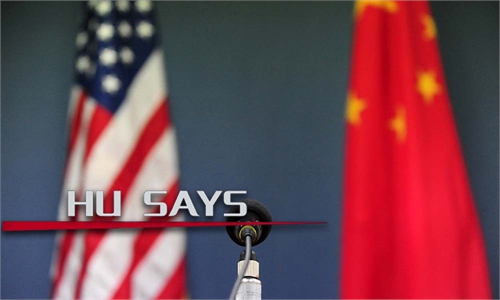Bilibili, Weibo rectify wrongly written words to standardize usage, spread traditional culture

A man walks through a sea of Chinese characters at the International Cultural Industries Expo held in East China's Shanghai Municipality. The set was inspired by the script of the Kunqu opera "Six Records of a Floating Life", depicting unique oriental aesthetics. Photo: IC
China's Twitter-like Sina Weibo and video streaming and sharing giant, Bilibili, have taken actions to rectify wrongly written Chinese characters and call on the public to use Chinese characters correctly and spread traditional culture.
To create a clean network environment and maintain healthy online community, Weibo announced on Wednesday it has launched a campaign to rectify posts that use wrongly written characters, including homophonous characters or restructured characters, to spread illegal and harmful information.
The platform additionally announced that it will enhance measures to screen and clean posts using incorrect characters to spread illegal and harmful ideas. This will be achieved through the improvement of the key word recognition and management software. The platform stated it will help users write in standard Chinese characters through incentives and public events, read the announcement.
Amid public concerns that the move could lead to one-size-fits-all policy to ban all wrongly written characters, even those written without intention, one of Weibo's official accounts replied that the move targets posts that purposely use wrongly written characters to spread harmful information, rather banning all wrongly written characters.
On Tuesday, Bilibili also released a proposal calling on netizens to use Chinese characters according to the standards and boycott wrong practices like weird fonts and incorrect structures.
Bilibili said the move was intended to create a friendly community as well as to implement the platform's responsibility to help promote the standardization of Chinese characters and language and spread excellent Chinese traditional culture. It is also a move in accordance with the campaign by the related authorities to rectify the issue, according to Bilibili.
On April 6, the Chinese National Press and Publication Administration and the National Radio and Television Administration, jointly published a notice to regulate the use of Chinese characters to rectify the problems of incorrect and non-standard use, eliminate ugly and weird font usage and to assure orthodoxy of the characters.
The platforms' latest moves soon caught the public's attention. Some netizens supported the move saying it could help prevent Weibo users from purposely writing characters wrongly to cyberbully others while escaping platform regulations.
Others said that homophonous characters have been overused on some social media platforms, leading to difficulties for users to read and create a negative influence on the standard use of Chinese characters in youngsters.
Chinese experts said that the incorrect use of Chinese characters online to some extent destroys the traditional meaning of the characters and create communication barriers among netizens. Especially, youngsters might have the wrong meaning or use characters incorrectly. That is why the authorities decided to launch the campaign, experts noted.


